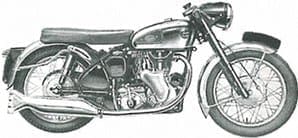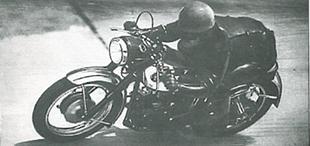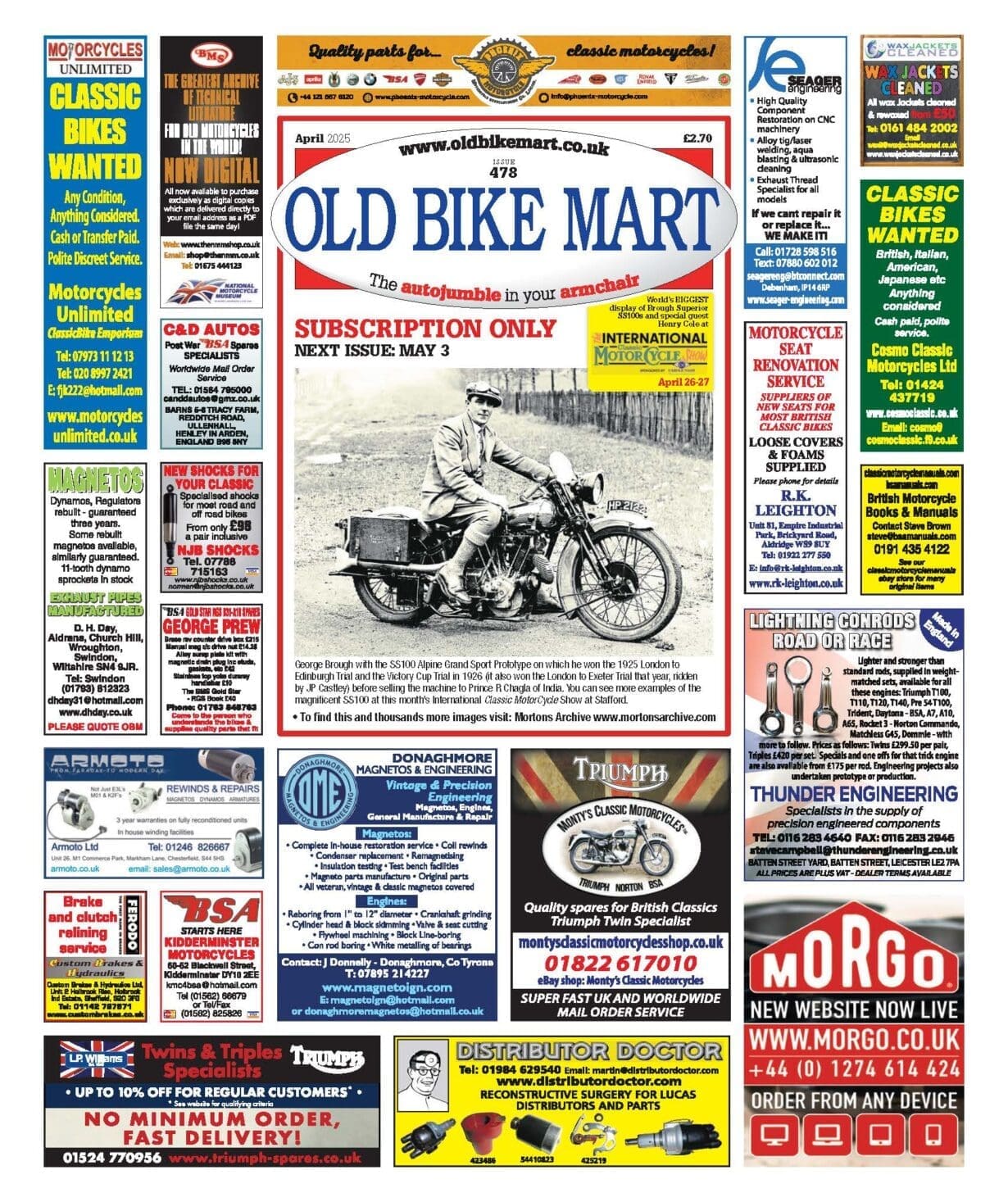
They first appeared as full production models in the company's catalogue for 1960; previously the special equipment to turn the 350 Viper and 500 Venom into Clubman's racing machines had been available in the form of `extras'; parts supplied to order, for the sporting rider.
The specification differences between the new Clubman models and the standard bikes included, Scrambler type piston and compression ratio: TT close ratio gears: TT type Amal carburettor: BTH racing type BKH1 hand controlled magneto: rear mounted footrests and pedals: reversed gear operating camplate: two way damped front fork: steering damper: flexibly mounted petrol tank (rear bolt fixing replaced by a rubber buffer on the frame top tube): taper barrel petrol taps: downturned handlebar: ball ended brake and clutch levers and a reinforced exhaust/silencer mounting tucked more closely against the frame.
 Factory finish was in black with chrome plated and panelled tank, gold lined with three dimensional ‘Diakon' tank badges (shaded red for 500, silver for 350); crankcase and gearbox castings were highly polished. On their announcement in September 1959, the Viper Clubman was priced at £273.6.9d and the Venom Clubman at £281.15.7d. There still remained a number of listed extras, comprising a Tachometer (rev meter): light alloy rims: alternative drive sprockets and Megaphone exhaust system.
Factory finish was in black with chrome plated and panelled tank, gold lined with three dimensional ‘Diakon' tank badges (shaded red for 500, silver for 350); crankcase and gearbox castings were highly polished. On their announcement in September 1959, the Viper Clubman was priced at £273.6.9d and the Venom Clubman at £281.15.7d. There still remained a number of listed extras, comprising a Tachometer (rev meter): light alloy rims: alternative drive sprockets and Megaphone exhaust system.
The illustrations here, show the original Clubman style, although in later years cosmetic changes altered the appearance quite radically. Most notable amongst these being the adoption of a deeper section tank, unfaired headlamp, gaitered forks, two leading shoe front brakes, narrower painted guards with revised stays, toolbox on the nearside, revised gear change linkage, swept back exhaust and coil ignition in 1968. That's it then – 1960 was the year. ![]()
See also When was it that? contents





